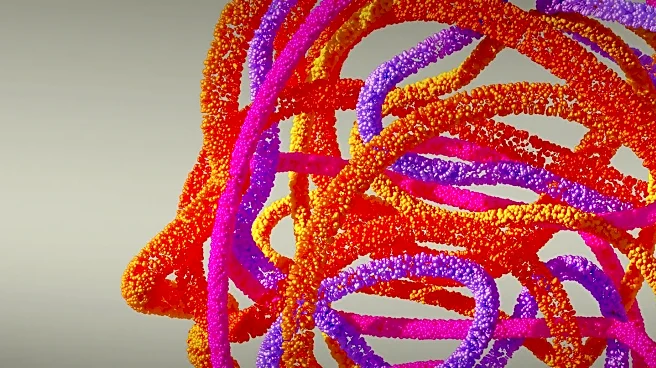What's Happening?
UniQure's experimental gene therapy, AMT-130, has shown significant progress in slowing the progression of Huntington's disease by 75% over three years. The therapy targets abnormal proteins in the brain responsible for the disease's progression. In a study involving patients treated with a high dose of AMT-130, the therapy achieved the primary goal of significantly reducing disease progression compared to an external control group. The results are likely to support the first approval of a genetic treatment for Huntington's disease.
Why It's Important?
The success of AMT-130 in slowing Huntington's disease progression represents a major breakthrough in the treatment of neurodegenerative conditions. This development offers hope for patients and families affected by Huntington's, as it could preserve years of quality life and employment. The therapy's potential approval would mark a significant milestone in genetic medicine, potentially paving the way for similar treatments for other neurodegenerative diseases.
What's Next?
UniQure plans to submit an application to the FDA for AMT-130 early next year, with potential approval and launch anticipated by 2027. The company will continue to monitor the therapy's long-term efficacy and safety. The biotechnology industry and patient advocacy groups will be closely watching the regulatory process, as successful approval could set a precedent for future gene therapies.
Beyond the Headlines
The success of AMT-130 highlights the potential of gene therapy in treating neurodegenerative diseases, which have historically been challenging to manage. Ethical considerations regarding access and affordability of such treatments may arise, given the complexity and cost of gene therapy procedures. Additionally, the trial's success may stimulate interest in exploring gene therapy for other conditions, potentially leading to broader applications and innovations in the field of genetic medicine.











